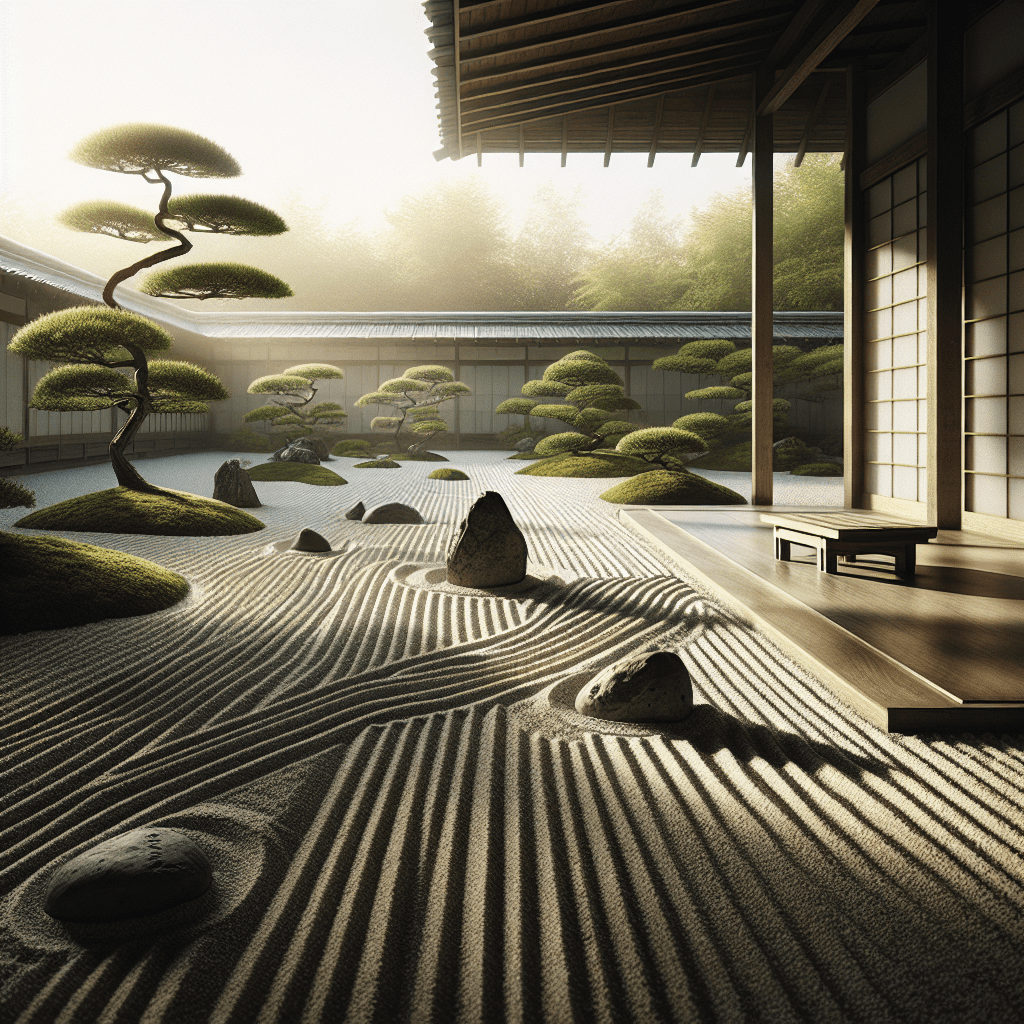In today’s fast-paced world, stress has become our constant companion. From demanding jobs to personal responsibilities, the pressure seems never-ending. According to recent studies, nearly 77% of Americans regularly experience physical symptoms caused by stress. It’s no wonder that mental wellness has emerged as a critical focus for health-conscious individuals seeking natural remedies to combat this modern epidemic.
“Stress isn’t just in your head—it manifests physically in your body,” explains Dr. Maya Chen, a mental wellness coach specializing in Eastern healing techniques. “When we ignore our mental health, our entire system suffers.”
As more people recognize the limitations of conventional approaches to stress management, many are turning to ancient Eastern wisdom for solutions. These time-tested practices offer profound insights into achieving balance and harmony in both mind and body—a refreshing alternative to the quick-fix solutions often promoted in Western culture.
The Mind-Body Connection: Eastern Perspectives on Wholeness
Eastern philosophies have long understood what Western science is only beginning to confirm: the mind and body are inseparable partners in our overall health. Unlike the compartmentalized approach common in Western medicine, Eastern healing traditions view humans as integrated wholes, where mental and physical health are deeply interconnected.
At the heart of this understanding is the concept of Yin and Yang—complementary opposing forces that must remain in balance for optimal health. “When your Yin and Yang energies are balanced, you experience harmony in both mind and body,” says Lin Wei, a mental wellness coach with over 20 years of experience integrating Eastern practices into his work.
This philosophy extends to the Five Element Theory in Traditional Chinese Medicine, which connects our emotional states to specific organ systems. For instance, excessive worry is linked to spleen and stomach function, while unresolved anger affects the liver. A mental wellness coach trained in Eastern wisdom understands these connections and can help address both the physical and emotional aspects of stress.
The concept of Qi (pronounced “chee”)—the vital life force that flows through energy pathways in our bodies—is another fundamental principle. When stress blocks these pathways, both mental and physical ailments can develop. Eastern practices aim to restore the smooth flow of this energy, allowing for natural healing to occur.
“Most people don’t realize that what they’re feeling emotionally directly impacts their physical health,” explains Mei Lin, a mental wellness coach who blends Eastern wisdom with modern coaching techniques. “When we address the root cause of stress through balancing energy, we heal on multiple levels simultaneously.”
Eastern Techniques for Mental Clarity and Stress Reduction
Eastern healing traditions offer a rich toolbox of practices that mental wellness coaches can use to help clients manage stress and enhance mental clarity. These techniques have stood the test of time, with some dating back thousands of years.
Meditation and Mindfulness
Perhaps the most widely adopted Eastern practice in the West, meditation has been scientifically proven to reduce stress hormones and increase feelings of wellbeing. A mental wellness coach often begins by teaching simple meditation techniques that help clients quiet their racing minds.
“Meditation isn’t about emptying your mind completely—it’s about becoming aware of your thoughts without attaching to them,” says Sarah Johnson, a mental wellness coach who incorporates Zen Buddhist principles into her practice. “Just 10 minutes daily can transform how you respond to stressful situations.”
Mindfulness—the practice of bringing full awareness to the present moment—extends meditation into everyday activities. Whether eating, walking, or working, mindfulness helps break the cycle of stress by preventing the mind from continuously dwelling on past regrets or future worries.
Tai Chi and Qigong
These movement-based practices combine gentle physical activity with breathwork and mental focus, making them particularly effective stress-reduction tools. A skilled mental wellness coach can teach modified versions suitable for any age or fitness level.
“Tai Chi and Qigong work because they engage the entire system—body, mind, and energy,” explains David Wong, who has been teaching these practices for over 15 years. “The slow, deliberate movements create a moving meditation that calms the nervous system while strengthening the body.”
Research supports these benefits, with studies showing that regular practice reduces stress hormones, lowers blood pressure, and improves sleep quality—all crucial factors in mental wellness.
Breathwork
Eastern traditions place enormous importance on conscious breathing as a gateway to mental clarity. Various pranayama techniques from yoga and similar practices from other traditions offer powerful tools for managing stress in the moment.
“Your breath is the bridge between mind and body,” says Anna Petrov, a mental wellness coach specializing in breathwork. “When you change your breathing pattern, you immediately shift your mental state. It’s the fastest way to interrupt the stress response.”
Simple techniques like alternating nostril breathing or extended exhale breathing can be taught in a single session, giving clients immediate tools for self-regulation during stressful situations.
Bridging East and West: An Integrated Approach to Mental Wellness
The true power of Eastern wisdom emerges when these ancient practices are thoughtfully integrated with modern Western approaches to mental health. This integration creates a comprehensive framework that addresses stress on multiple levels.
Many mental wellness coaches now combine cognitive-behavioral techniques with meditation, or blend talk therapy with energy work. This integrated approach recognizes that different aspects of stress require different tools—some working at the level of thought patterns, others addressing physical tension or energy blockages.
“The future of mental wellness isn’t about choosing between East and West—it’s about taking the best from both traditions,” explains Dr. Michael Thompson, who trains mental wellness coaches in integrated approaches. “When we combine the analytical strengths of Western psychology with the holistic wisdom of Eastern practices, we create something more powerful than either approach alone.”
Real-world examples of this integration abound. John, a high-powered executive suffering from chronic stress and insomnia, found little relief from conventional therapy until his mental wellness coach introduced him to qigong and meridian-based self-massage techniques. “The combination of talking through my stressors while also addressing the physical tension through movement completely changed my relationship with stress,” he reports.
Similarly, research at major medical centers shows that patients recovering from stress-related illnesses recover more quickly when traditional treatments are supplemented with practices like meditation and tai chi. This evidence has led to a growing acceptance of Eastern approaches in mainstream healthcare settings.
The Role of a Mental Wellness Coach in Eastern-Inspired Healing
A skilled mental wellness coach serves as a bridge between ancient wisdom and modern needs, translating time-tested practices into accessible tools for contemporary life. Unlike a traditional therapist who might focus primarily on talk therapy, a mental wellness coach trained in Eastern approaches offers experiential practices that engage the entire person.
“My role isn’t to fix my clients but to awaken their innate capacity for self-healing,” explains Sophia Martinez, who became a mental wellness coach after experiencing the transformative effects of Eastern practices in her own life. “These ancient traditions recognized that the power to heal exists within each of us—we just need the right tools to access it.”
A typical session with a mental wellness coach might begin with a centering breathwork exercise, followed by discussion of current stressors, and then introduction of specific practices tailored to the client’s needs. The coach might teach energy-balancing techniques like Emotional Freedom Technique (tapping), guide the client through a visualization practice, or demonstrate simple qigong movements for home practice.
The relationship between coach and client becomes a safe container for exploring new ways of being. “Many of my clients have tried everything the conventional system has to offer,” says Jason Lee, a mental wellness coach working with burnout professionals. “What makes Eastern approaches different is their emphasis on experiential learning rather than intellectual understanding. You don’t just talk about stress—you learn practices that transform your experience of it.”
This experiential focus makes the work highly practical. Clients leave sessions with concrete tools they can implement immediately, creating a sense of agency that itself reduces stress. The mental wellness coach empowers clients to become active participants in their healing journey rather than passive recipients of treatment.
EASTCHI AI: Where Ancient Wisdom Meets Modern Technology
The principles that guide a mental wellness coach in applying Eastern wisdom to stress reduction are beautifully embodied in innovative platforms like HerbalsZen’s EASTCHI AI. This groundbreaking system represents the next evolution in making Eastern healing wisdom accessible to those seeking natural approaches to mental wellness.
EASTCHI AI seamlessly integrates the 2,000-year-old wisdom of Eastern medicine with cutting-edge artificial intelligence, creating personalized wellness recommendations that address both mind and body. Just as a mental wellness coach assesses a client’s unique constitution and needs, EASTCHI AI analyzes individual patterns to provide tailored guidance.
The system draws on the same foundational principles that inform Eastern approaches to mental wellness—Five Element Theory, seasonal harmony, and the concept of food as medicine. By understanding your constitutional type, EASTCHI AI can recommend specific nutritional choices and lifestyle practices that naturally support mental balance.
For example, someone experiencing stress-related digestive issues might receive recommendations based on the Earth element in Five Element Theory, with specific foods and practices to restore harmony to both the digestive system and the emotional states connected to it. This holistic approach mirrors how a skilled mental wellness coach would address the interconnection between physical symptoms and mental states.
“What makes platforms like EASTCHI AI so revolutionary is their ability to make these ancient healing systems accessible to everyone,” notes Dr. Emily Wong, who studies the integration of technology and traditional medicine. “Not everyone has access to a mental wellness coach trained in Eastern traditions, but technology can now bring these insights to anyone seeking a more balanced approach to mental health.”
The personalized nature of these recommendations honors a core principle of Eastern healing traditions—that each person’s path to wellness is unique. Just as no two coaching relationships are identical, the AI-driven insights adapt to individual needs, preferences, and constitutional types.
As we navigate the increasingly complex stressors of modern life, the wisdom of Eastern traditions offers a timeless reminder that true mental wellness comes from balance, harmony, and integration. Whether working with a mental wellness coach or exploring platforms like EASTCHI AI, the journey toward stress reduction and mental clarity benefits enormously from these ancient insights.
By embracing the holistic perspective that has guided Eastern healing for millennia, we open ourselves to a more comprehensive understanding of mental wellness—one that honors the inseparable connection between mind and body, and empowers us to cultivate balance in all aspects of our being.



